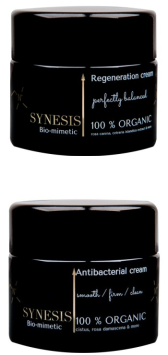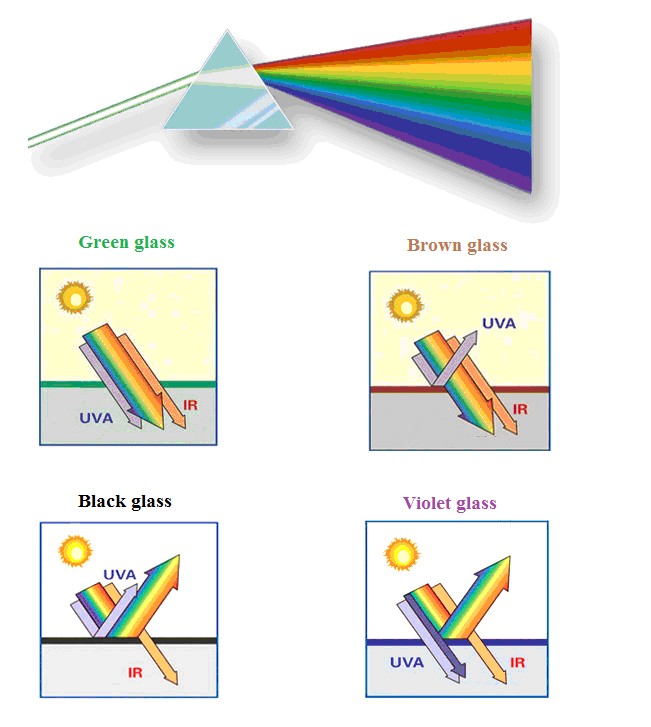
What is violet glass and why does SYNESIS use it in its new packaging of cosmetics?
The special properties of violet glass were first appreciated in ancient Egypt. Precious aromatic oils, medicine and food were stored in jars made of violet glass and gold. Medieval alchemists and manufacturers of times past were also conscious of the unique advantages of this glass. Queen Victoria, Marie Antoinette and Empress Catherine the Great stored their ointments and perfumes in bottles and jars made of violet glass. Along with the progressive industrialisation and discovery of new, easier-to-handle and cheaper packaging materials, over the last century violet glass was consigned to oblivion. As late as the 1930s some beauty brands occasionally used them in packs of exclusive cosmetics, but after the Second World War violet glass became redundant.
Currently, some companies producing glass packaging have started re-manufacturing violet glass and developed its technology, providing the most effective opportunity to protect materials stored in them.
Why is violet glass so special?
The uniqueness of violet glass lies in the fact that a harmful range of light passing through it is filtered out. The protective effect of this glass has been confirmed by measurements and studies conducted by Dr Hugo Nigglie from the Institute of Biophysics, Prof. Fritz Popp in 1996, and Dr Dieter Knapp.
How is it that violet glass so effectively protects against the harmful effects of UVB rays?
Sunlight enables the growth of all plants. If, however, upon ripening they are still exposed to solar radiation, the impact of light changes from beneficial to disadvantageous, and speeds up the molecular process of decay. Packaging made of violet glass acts as a natural filter and protects its contents.

The properties of violet glass were examined through a series of studies and tests. The "green chives test" was found to be the simplest, and at the same time the most spectacular one. For 2 months the same amounts of chopped chives were stored in 3 sterile jars made of three types of glass: violet, brown and white. After 2 months of the experiment, it was found that the best conditions to store chives were provided by the jar made of violet glass – the chives did not lose their colour, flavour, aroma and properties.

The "tomato test" was another interesting experiment. It was based on storing a tomato for 7 months in sterile jars made of two types of glass - violet and white. After 7 months, it was found that the microbiology of the tomato was not disturbed in the jar made of violet glass, and the vegetable retained its freshness and all properties.

Containers made of violet glass in which SYNESIS-branded cosmetics are placed:
- guarantee the best protection of all contents
- preserve the freshness of stored products
- extend the usability of stored products
- reduce the application of preservatives
- can be re-used many times
- are recyclable
SYNESIS - as one of only a few cosmetic brands - makes use of violet glass for packaging. It does not pass UVB rays, protecting cosmetics and at the same time guarantees their steady formula, highest quality and most efficient operation of active ingredients.




